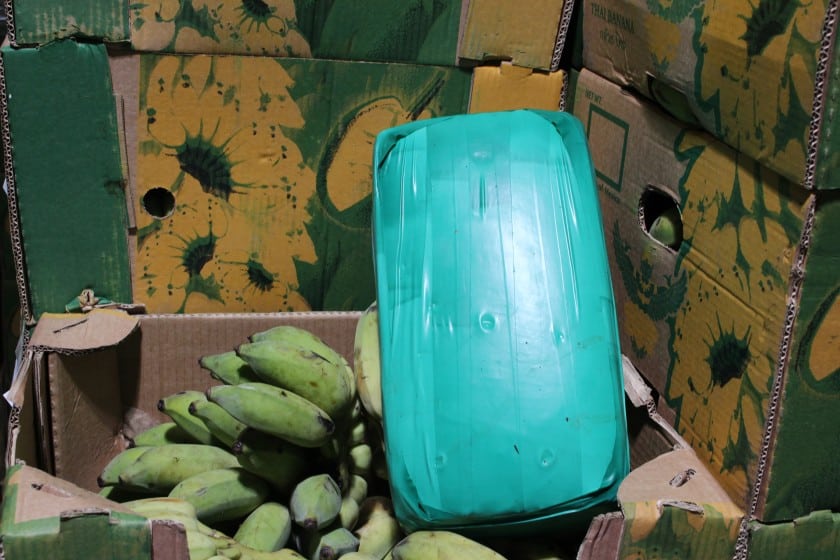Borderlands is a weekly rundown of developments in the world of United States-Mexico cross-border trucking and trade. This week: Mexico’s government nears legalizing marijuana; U.S.-Mexico sugar trade agreement in limbo; Texas-Mexico border gets new bridge for commercial trucks; and $650,000 worth of marijuana found in shipment of Thai bananas
Mexico is set to legalize recreational marijuana, and could soon be exporting it to the U.S.
Mexico’s Senate is prepared to receive a bill that fully legalizes cannabis – including recreational use by October 31.
If approved, Mexico would become the most populous country with a federally regulated adult-use cannabis market. Mexico’s population is 125 million, far ahead of Canada and Uruguay, the two countries where marijuana is currently legal.
Since leaving office in 2006, former Mexican President Vicente Fox has been a vocal advocate for the legalization of medicinal and recreational marijuana.
Fox has said legalizing marijuana is one of the best ways to combat violent drug cartels. Fox also believes legalization presents enormous opportunities for the Mexican economy.
“Only when we proceed to legalize we will see this business taken away from traffickers’ and cartel’s hands, and put in the hands of entrepreneurs, allowing for planning, regulation, a market, strategy – all of the tools available in the [legal] business world,” Fox said in an interview with Forbes.
In the Forbes interview, Fox pointed out that countries like Israel and Colombia – where cannabis has been partly legalized – is leading towards marijuana becoming an international business.
“The cannabis market will be global in due time,” Fox said. “Cannabis will soon be a powerful, employment-generating, wealth-generating, sector. So, this sector, just like industrials, cars or tech, will become increasingly attractive.”
Fox also said marijuna will be “a wide open market for cannabis imports and exports.”
However, Mexico’s current marijuana bill would impose restrictions on businesses, such as banning vertical integration, limiting foreign ownership and making business licenses non-transferable.
The bill would also would establish a long list of prohibitions, including a ban on recreational marijuana edibles and the use of cannabis in cosmetics.
U.S.-Mexico sugar trade agreement in limbo after federal court ruling
The future of sugar trade between the U.S. and Mexico is unclear after the U.S. Court of International Trade in New York vacated a 2017 agreement negotiated by the U.S. and Mexican sugar growers.
The 2017 agreement suspended sizable anti-dumping and countervailing duties on U.S. imports of sugar from Mexico.
“The Commerce Department’s determination to amend an agreement that suspended U.S. countervailing duties on Mexican sugar imports was illegal,” Judge Leo M. Gordon said in a court document dated October 18, according to Reuters.
“The court decision delivers a serious rebuke to the U.S. Commerce Department,” Louis Leibowitz, a trade attorney, said in Politico on October 23. “They were required by the statute to keep a log of meetings concerning the negotiation of the suspension agreement and they failed to do it.”
Mexico is a critical supplier of sugar to the U.S., supplying around 35% of imports.
The basis for the court ruling was a suit filed by CSC Sugar L.L.C. alleging that because of 2017 sugar agreement, competitors were using trade negotiations to deny access to cheap Mexican sugar imports.
The court’s latest ruling leaves the original 2014 “suspension agreements” in place, which had the refined/raw mix of sugar imports from Mexico at 53%/47%, the polarity for “other” sugar at 99.5 and reference prices for refined sugar at 26 cents per pound, and for raw sugar at 22 cents per pound.
A new international commercial truck bridge breaks ground in South Texas
City officials in Donna, Texas, recently broke ground on a construction project to add southbound commercial lanes to the Donna-Rio Bravo International Bridge.
The Donna-Rio Bravo International Bridge, which opened in 2010, currently only serves passenger vehicles.
The $4.6 million project to add southbound commercial lanes for trucks will allow traffic from the U.S. into Mexico through Donna, officials said.
“This is going to be one of the fastest routes – because we can cut their wait time by a lot,” Donna City Manager Carlos Yerena said in an interview with The McAllen Monitor.

Donna is located in south Texas, along the Rio Grande River and Mexican border, around 80 miles inland from the Gulf of Mexico.
Customs agents seize $650,000 worth of marijuana in a shipment of Thai bananas
U.S. Customs and Border Protection (CBP) agents at the Otay Mesa commercial checkpoint near San Diego, California, seized 1,600 pounds of marijuana that was hidden inside a shipment of bananas.
According to the CBP, a 44-year-old Mexican citizen arrived at the Otay commercial checkpoint at around 7 p.m. October 17, with a truckload of Thai bananas.
A CBP officer sent his truck for a second inspection, according to a press release.
In the second inspection area, CBP specialists requested that the truck’s cargo be lowered and a drug detector dog inspected and alerted CBP to the cargo. Officers opened the banana boxes and found a total of 215 large packages of marijuana, which were hidden among the bananas.

The marijuana had a street value of $650,000, according to the CBP.
“CBP officers and agriculture specialists work hand in hand at the entrance doors. Our teamwork not only prevented the marijuana from reaching the community, but also stopped the possible gains before they came to the hands of a transnational criminal organization,” said Joseph Misenhelter, CBP assistant port director.







